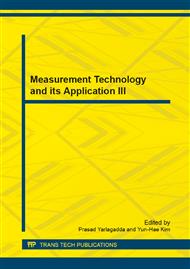p.1012
p.1016
p.1020
p.1026
p.1031
p.1036
p.1041
p.1045
p.1049
Research on Adaptive PID Control for Load Simulator with Varying Load
Abstract:
The electro-hydraulic load simulator is an important equipment for aircraft hardware-in-the-loop simulation. An adaptive PID control method for compensating extraneous torque with simple structure and easy to implement is proposed according to the variation characteristics of load gradient in the load simulator. The control parameter tuning method is also given.
Info:
Periodical:
Pages:
1031-1035
Citation:
Online since:
June 2014
Price:
Сopyright:
© 2014 Trans Tech Publications Ltd. All Rights Reserved
Share:
Citation:


